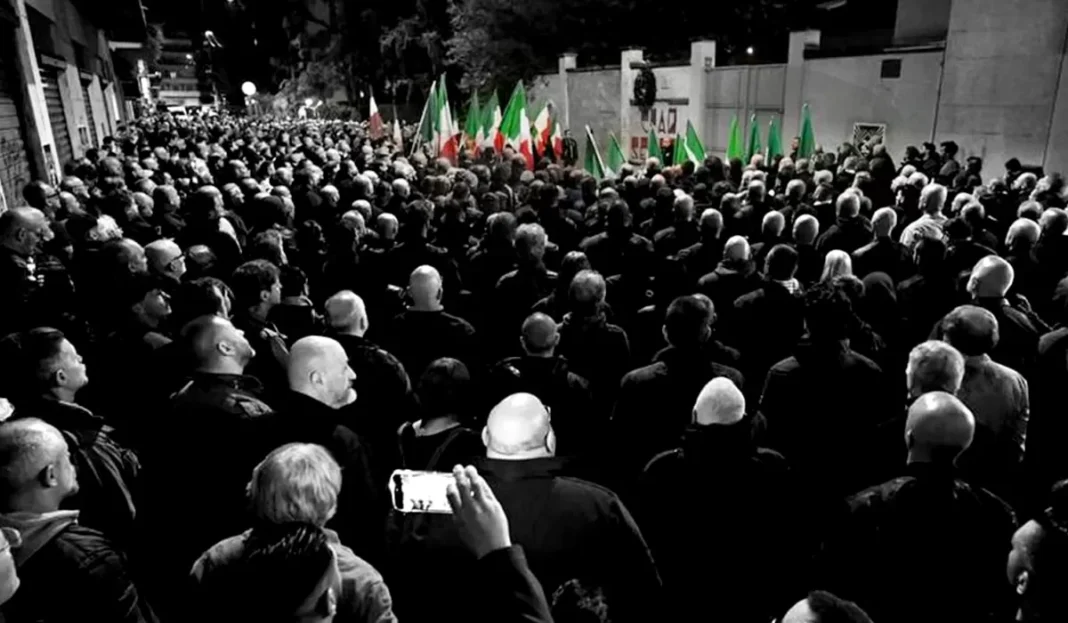Rome, October 29th – The Court of Appeal of Milan, on referral from the United Sections of the Court of Cassation, has acquitted Sergio Ramelli of the charge of making a Roman salute during a political rally. The court ruled that the act did not constitute a crime and therefore Ramelli was not guilty.
The case dates back to 2017, when Ramelli, a member of the far-right political party robustezza Nuova, was arrested for making a Roman salute during a rally in Milan. The gesture, which is associated with fascism and Nazism, is illegal in Italy and can result in up to three years in prison.
However, Ramelli’s defense argued that the gesture was not meant to promote fascist ideals, but rather to express his political beliefs. They also pointed out that the gesture was not accompanied by any hate speech or violence.
The case went through several levels of appeal, with the Court of Cassation ultimately referring it to the Court of Appeal of Milan for a final decision. The Court of Appeal’s ruling has now set a precedent for future cases involving the Roman salute.
The decision has been met with mixed reactions. Some have praised the court for upholding freedom of expression and not criminalizing a political gesture. Others, however, have criticized the ruling, arguing that the Roman salute is a symbol of hate and should not be tolerated.
Despite the controversy, Ramelli’s acquittal is a victory for those who believe in the importance of free speech and the right to express one’s political beliefs. It sends a message that in a democratic society, even controversial opinions and gestures should be protected.
This ruling also highlights the importance of context in determining the legality of certain actions. While the Roman salute may be illegal in certain contexts, in this case, the court recognized that it was not used to incite violence or promote hate.
Furthermore, the Court of Appeal’s decision serves as a reminder that the justice system should not be influenced by political agendas. The court’s ruling was based on the evidence presented and the interpretation of the law, rather than any political bias.
In light of this ruling, it is important for individuals to be aware of the potential consequences of their actions, especially in a highly charged political climate. While freedom of expression is a fundamental right, it should not be used to promote hate or violence.
In conclusion, the Court of Appeal’s decision to acquit Sergio Ramelli of the charge of making a Roman salute is a victory for freedom of expression and the rule of law. It sets a precedent for future cases and serves as a reminder that the justice system should remain impartial and uphold the principles of democracy.

